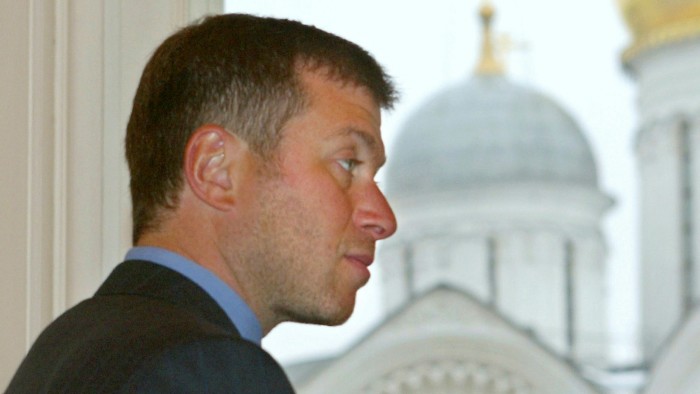Chelsea’s new boss seeks the quiet life

Roula Khalaf, Editor of the FT, selects her favourite stories in this weekly newsletter.
Roman Abramovich does not look like the typical owner of a top flight football club. Short, shy, softly-spoken and unshaven, he is far removed from the typical image of a brash cigar smoking club chair.
But the Russian billionaire may have to get used to the limelight. As he spoke to the Financial Times in one of the opulent Millennium Suites at Chelsea’s Stamford Bridge ground on Wednesday, hordes of cameramen were waiting in the rain, straining for a glimpse of the man who had just bought a controlling stake in the west London club.
From a shortlist of three — thought to include Manchester United and Arsenal — Abramovich and his advisers elected to table an offer to the Chelsea board which, including debt, is worth about GBP150m.
“We did a detailed analysis over a number of months on the clubs we were interested in,” he said on Wednesday. “Chelsea had the most pluses and was the most ideal. I thought I could bring a lot of pluses too.”
Abramovich wants to establish Chelsea among the elite clubs of Europe. But he is likely to have to buy new stars and dip into his personal funds — he is worth an estimated $8bn — to achieve his dream.
He refused to comment on how much he would spend on players but indicated lack of funds would not be an issue. “I don’t look at this as a financial investment,” he said. “I look at it as a hobby, as a sport rather than an investment. I’d looking at it as something to have fun with rather than having to realise a return.”
“I think it’s too early to give specific plans [on player trading],” he added. “We are still doing a detailed evaluation of what we have here. When we have a better handle on the situation we will decide.”
Abramovich is a close associate of the fugitive Russian oligarch, Boris Berezovsky, who lives in London. He is close to Boris Yeltsin, with many suggesting he acted as banker to Yeltsin and his daughter, Tatiana, during the former Russian premier’s presidency.
Abramovich denied on Wednesday that he supported Yeltsin during his term in office. “I only met him after he left the presidency,” he said.
As one of Russia’s richest men and former governor of the North-eastern Russian region of Chukotka, he retains significant influence in Moscow’s corridors of power.
However, he said he had “no special relationship” with Vladimir Putin, Russia’s president, “apart from through my work as a [state] governor and the government committee I sit on.”
His investments include 88 per cent of Sibneft, one of the country’s largest oil groups, 50 per cent of Rusal, one of Russia’s largest aluminium producers and a quarter of Aeroflot, the former state-owned airline.
Abramovich made his fortune during the run of privatisations which were fuelled by Russia’s rapid industrial transformation from Communist rule to a free-market economy during the 1990s.
His critics have accused him of buying the stakes in national industries on the cheap. On Wednesday, he sounded a note of defiance, saying he had to risk everything he owned.
“You have to start from this premise: most people did not want to take the risk,” he said. “When people say I bought [my investments] on the cheap, they don’t understand what really happened.”
“It’s crying over spilled milk. I wanted to participate[in the privatisations] but I had to be prepared to risk everything.”
Buying Chelsea will allow him to spend more time in England. “I love England. My children will eventually go to school here and I have a house here. For me, it’s the perfect place.”
He insisted the Chelsea purchase would not cause problems with his other investments. “My whole philosophy in life is to bring in professional teams,” he said. “In Chukotka I have professional teams on the ground and I will do this here [with Chelsea] too”.
Ken Bates, the Chelsea chair, and Trevor Birch, chief executive, are set to retain their roles. But Abramovich did not rule out future changes.”We have no plans at the moment to change the management here — at the moment,” he said.
He admitted the deal may cause raised eyebrows among his countrymen. “In Russia, England is always viewed as a very good place, with its education and culture being of high calibre.
“It’s pleasant to be here, you feel comfortable and you don’t feel people are watching you. I’m sure people will focus on me for three or four days but it will pass. They’ll forget who I am, and I like that.”
Comments